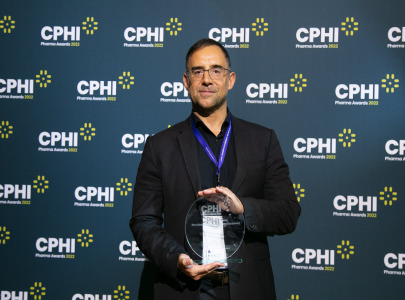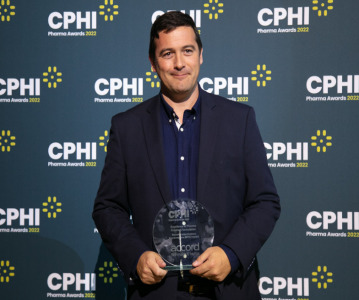CPHI Pharma Award Winners 2022: API Development – Tokuyama Corporation
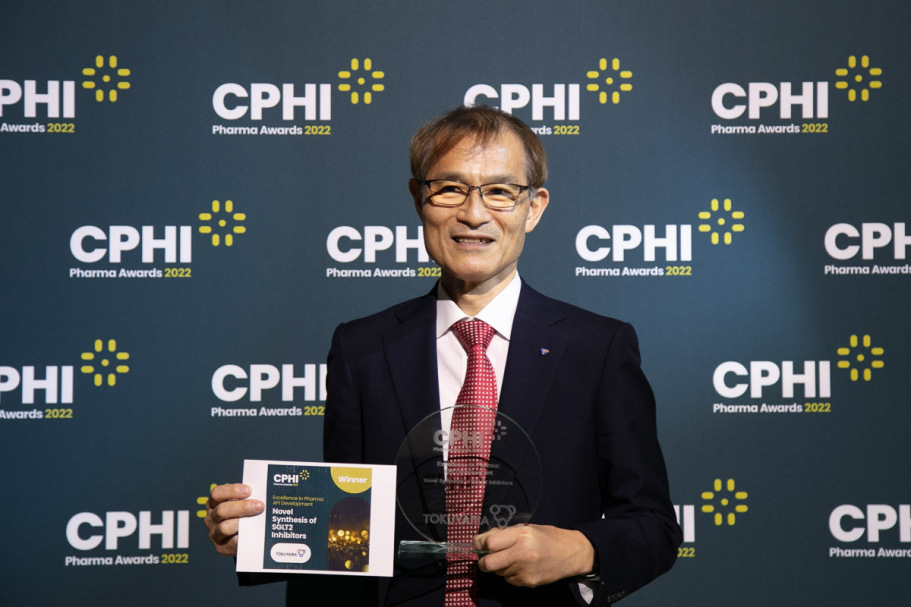
Dr Masahiko Seki, Tokuyama Corporation
In this series of interviews, we speak to the teams behind the winning concepts at CPHI Pharma Awards 2022, which was held at CPHI Frankfurt, across the categories from digital innovation to CEO of the year.
The very competitive category of API Development was won by a team from Tokuyama Corporation, for their work on novel synthesis of SGLT2 inhibitors for use in diabetes therapy options. Here, we spoke to Dr Masahiko Seki, Fellow of Marketing Group, R&D, Tokuyama Corporation and Guest Professor of Graduate School of Pharmaceutical Science, Osaka University, who is responsible for the project awarded.
Firstly, can you tell us a little more about Tokuyama Corporation and your key priorities for the year ahead?
Tokuyama Corporation is one of the leading chemical industries in Japan established in 1918 whose net sales is around 2.3 billion USD in 2021. Business fields that we cover are inorganic and organic chemicals, cement, building materials, electronic materials, life science, eco-business, and others. The number of employees is 5,665 and that of group companies is 87. The key priorities for the year ahead are new business development & globalisation, which includes our API and intermediates manufacturing.
This year, you won the CPHI Pharma Awards for API Development, can you tell us more about the winning technology?
Sodium dependent glucose transporter 2 (SGLT2) inhibitors are one of the most effective diabetes drugs ever developed and the world demand has been growing significantly. However, previous synthetic methods suffer from need of cryogenic conditions (-78 °C) for performing the key step to bind the aromatic part with a sugar moiety, which significantly restricted enough supply of this important class of drugs to the world market. We addressed this challenge by developing a new synthetic method that can be undertaken under very mild conditions (40 °C) to conduct the key coupling step. The new process has wide substrate scope and most of the launched SGLT2 inhibitors (7 drugs) are to be made by this methodology. The synthetic method is so effective that it has been published in a prestigious European journal as well as a PCT world patent. The scale up studies of the new process are currently under extensive investigation to ensure its rapid commercialisation.
Diabetes is a serious condition that affects people for their whole lives, how will the novel synthesis of SGLT2 inhibitors help to improve the quality of life of patients?
Recently prevailing type II diabetes is caused by high plasma glucose level, which is mainly controlled by the kidneys where approximately 90% of renal glucose is reabsorbed through SGLT2. Hence, specific inhibition of the renal SGLT2 transporter provides a rational approach to therapy in patients with diabetes. In addition, recent studies revealed that SGLT2 inhibitors reduced the risk of cardiovascular death in patients with heart failure. Those favourable properties of SGLT2 inhibitors would significantly help improve the quality of life of patients throughout the world.
How will this product/technology benefit the pharma industry as a whole over the coming years?
Our synthetic technology has worked out a pending issue of need of cryogenic conditions that considerably restricted manufacturing of this important class of pharmaceuticals. Many producers even originators of the API would change their current synthetic method to ours for improvement of supply and cost.
Sustainability is a big buzz word for the pharma industry now - how does Tokuyama define sustainability, and what is your approach?
It’s a very often asked question and topic when I meet people with the same mission and challenges. There are two approaches for a way of thinking to address these challenges: “target-oriented” or “concept-oriented”. My answer is simply both. It’s very easy to manufacture materials by relying on a known method that can provide the target product very quickly. But it can only provide a very specific single product and no further application is possible. In contrast, if a versatile and novel method is to be explored and finally developed as an innovative one, though considerable endeavour and especially strong ideas and a mind for success are needed, it enables the synthesis of a lot of new products other than the specific target. I believe even in companies, though not in academia, to take risks and to challenge such approaches that are significant for their “sustainable” growth.
What does winning the award mean to you and your team and what will it do for you as a company?
It’s a great pleasure and honour that our newly developed technology is officially recognised as the winner of such an important award. It’s really an encouragement and testimony to continue such a way of thinking as well.
You’ve set the bar high with this, can we expect to keep seeing more innovative work from you in the future?
The currently developed novel synthetic method can be applied not only for the synthesis of SGLT2 inhibitors but also other products because the scope of the technology is so general. This is the second time for me to be awarded the CPHI Pharma Award (first time in 2013). You can certainly expect to see more innovative work from our team over the coming years.
To see what the other teams have to say about their award winning work, see here.
Related News
-
News CPHI Pharma Award Winners 2022: Pharmaceutical Packaging & Drug Delivery – Evonik
In this series of interviews, we speak to the teams behind the winning concepts at CPHI Pharma Awards 2022, which was held at CPHI Frankfurt, across the categories from digital innovation to CEO of the year. -
News CPHI Pharma Award Winners 2022: Digital Innovation – ATMPS Ltd
In this series of interviews, we speak to the teams behind the winning concepts at CPHI Pharma Awards 2022, in each of the different categories, from digital innovation to CEO of the year. -
News CPHI Pharma Award Winners 2022: Supply Chain, Logistics, and Distribution – HCLTech
In this series of interviews, we speak to the teams behind the winning concepts at CPHI Pharma Awards 2022, in each of the different categories, from digital innovation to CEO of the year. -
News CPHI Pharma Award Winners 2022: CEO of the Year – Aragen Life Sciences
In this series of interviews, we speak to the teams behind the winning concepts at CPHI Pharma Awards 2022, in each of the different categories, from digital innovation to CEO of the year. -
News CPHI Pharma Award Winners 2022: Manufacturing, Tech, and Equipment – Just-Evotec Biologics
In this series of interviews, we speak to the teams behind the winning concepts at CPHI Pharma Awards 2022, in each of the different categories, from digital innovation to CEO of the year. -
News CPHI Frankfurt 2022: Innovator Interview - Lonza Small Molecules
In this series of interviews, we speak to companies on the CPHI Frankfurt show floor who are driving innovation in pharma for a better healthcare future. Here, we spoke to Henny Zijlstra, Senior Director, Commercial Development at Lonza Small Molecules... -
News CPHI Frankfurt 2022: Innovator Interview - Sharp
In this series of interviews, we speak to companies on the CPHI Frankfurt show floor who are driving innovation in pharma for a better healthcare future. We spoke with Alexander Schäfer, BD Manager Europe of Sharp to understand the current la... -
News CPHI Pharma Award Winners 2022: Finished Formulation – Accord Healthcare
In this series of interviews, we speak to the teams behind the winning concepts at CPHI Pharma Awards 2022, in each of the different categories, from digital innovation to CEO of the year.
Position your company at the heart of the global Pharma industry with a CPHI Online membership
-
Your products and solutions visible to thousands of visitors within the largest Pharma marketplace
-
Generate high-quality, engaged leads for your business, all year round
-
Promote your business as the industry’s thought-leader by hosting your reports, brochures and videos within your profile
-
Your company’s profile boosted at all participating CPHI events
-
An easy-to-use platform with a detailed dashboard showing your leads and performance

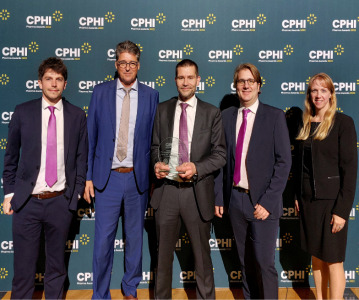
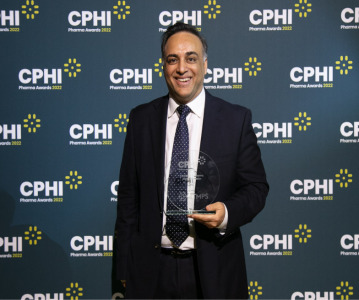
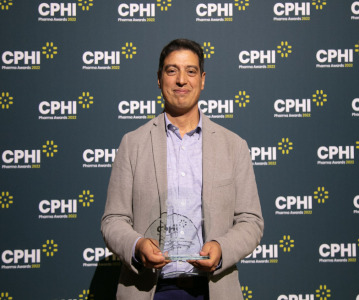
.png)
